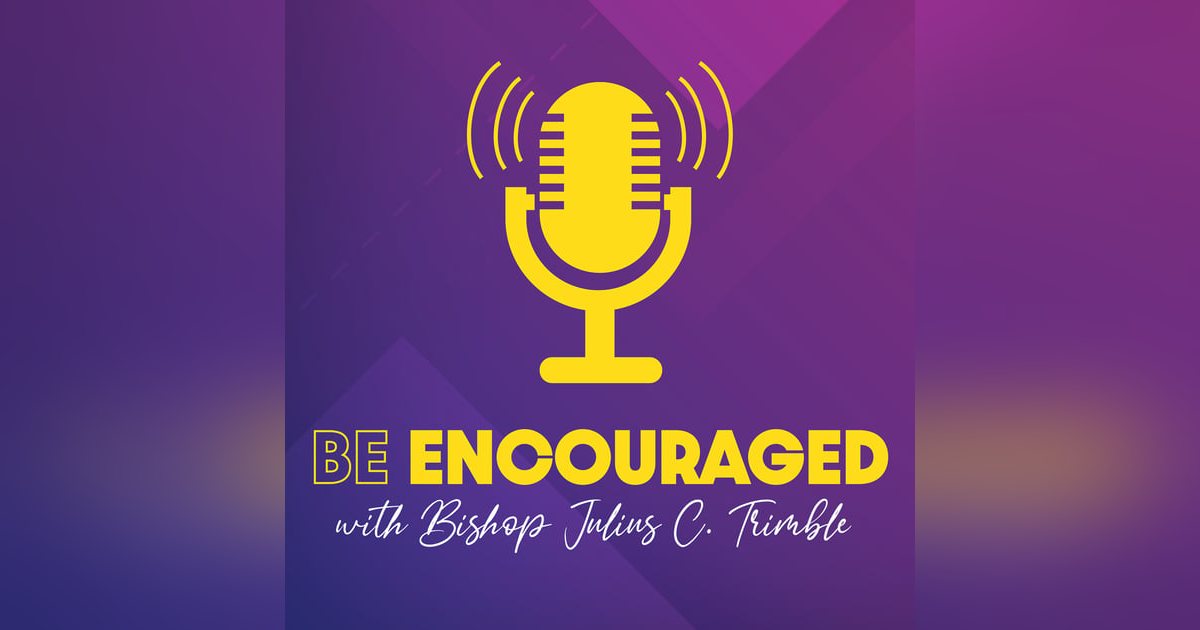God Does Take Sides. Courageous Conversations and Prophetic Preaching with Bishop Gregory Palmer-Part 2

Bishop Julius C. Trimble is the Resident Bishop of the Indiana Area of the United Methodist Church.
Bishop Trimble has the personal mission to encourage all people with the love of Jesus Christ to rise to their highest potential. It is his commitment to his personal mission that led Bishop Trimble to create the “To Be Encouraged” Podcast along with co-host Rev.Dr. Brad Miller.
Bishop Trimble says, “I am compelled by Jesus to share with you an encouraging word or two about Jesus, theology, the Bible, the pandemic, the environment, racism, voting rights, human sexuality, and the state of the United Methodist Church.”
To Be Encouraged with Bishop Julius C. Trimble is to be published weekly and is available at www.tobeencouraged.com and all the podcast directories.
https://www.inumc.org/bishop/office-of-the-bishop/
Episode 036 is Part 2 of a two part interview with West Ohio Conference Bishop Gregory V. Palmer. Part 1 is available at this link:
https://tobeencouraged.com/episode/035
About Bishop Gregory V. Palmer
Bishop Gregory Vaughn Palmer
Ohio West Area, The United Methodist Church
https://www.westohioumc.org/conference/bishop-gregory-v-palmer
Bishop Gregory Vaughn Palmer serves as the episcopal leader of the Ohio West Area of The United Methodist Church. He was assigned there on September 1, 2012.
Born and reared in Philadelphia, Palmer is a “child of the church,” the son of the Rev. Herbert E. and Mrs. Charlotte Sue Hewitt Palmer. Palmer’s father (now deceased) was a retired United Methodist pastor; his mother (now deceased) was a schoolteacher in the Philadelphia Public School system.
Bishop Palmer received his undergraduate degree from George Washington University in Washington, D.C., and the Master of Divinity degree from Duke University Divinity School, Durham, North Carolina. Baldwin-Wallace College, Iowa Wesleyan College, Simpson College, Hood Theological Seminary and Garrett-Evangelical Theological Seminary and United Theological Seminary have awarded him honorary degrees.
He was ordained a deacon and elected a probationary member in the Eastern Pennsylvania Annual Conference in 1977. In 1981, he was elected into full membership and ordained an elder in the East Ohio Annual Conference.
His pastoral career includes student pastorates in North Carolina and post-seminary appointments in the East Ohio Conference in Cleveland, Canton and Berea. Palmer also served as superintendent of the Youngstown District of the East Ohio Conference.
Elected to the episcopacy by the North Central Jurisdictional Conference in 2000, Palmer served the Iowa Area until assuming responsibilities in the Illinois Area in 2008. Palmer served as president of the General Board of Higher Education and Ministry from 2004 to 2008 and president of the Council of Bishops from April 2008 to May 2010. Palmer served on the Commission on a Way Forward. Currently, he is a member of the Standing Committee on Central Conference Matters and chair of the Comprehensive Africa Plan. He also is a board member of several organizations, including The United Methodist Publishing House, Methodist Theological School in Ohio, United Theological Seminary and OhioHealth, a family of nonprofit hospitals and health care facilities, Ohio Northern University, Ohio Wesleyan University, Mount Union University and Emory University.
Married for 46 years to his wife Cynthia, they are the parents of two adult children.


